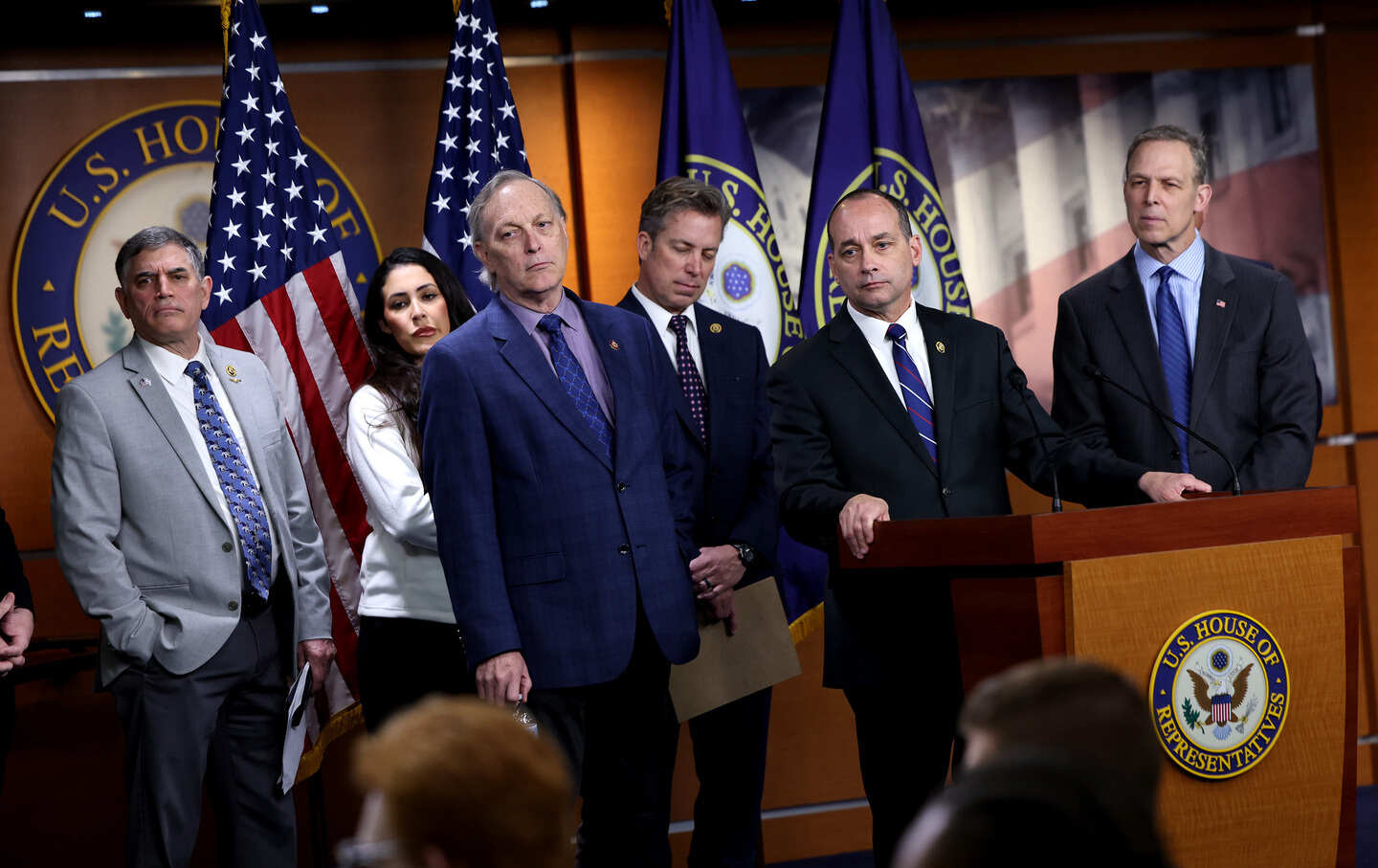
[ad_1]

U.S. Rep. Bob Good, attends a press conference on the government funding bill at the U.S. Capitol on March 22, 2024 in Washington, DC. The Freedom Caucus chastised House Speaker Mike Johnson for working with Democrats and urged their Republican colleagues not to support the funding bill while calling for a government spending reduction, increased border security and scaling back of the Foreign Intelligence Surveillance Act (FISA).
(Kevin Dietsch / Getty Images)
In April, congress voted to renew one of the most controversial pillars of the national security law, section 702 of the Foreign Intelligence Surveillance Act (FISA). 702, as it is popularly known, allows for warrantless wiretaps in the name of fighting terrorism. Although the measure passed and was signed by President Biden, the vote was exceptionally close, indicating an emerging bipartisan movement to regain the civil liberties lost in the fight against terrorism.
With Israel’s war in Gaza now sparking protests all over the world, the danger of anti-terrorism being used to surpress civil liberties grows.
To discuss the politics of 702 renewal on this episode of The Time of Monsters, I was joined by the journalists Doug Bell, a frequent guest of the podcast, and two distinguished lawyers with decades of experience in civil liberties and terrorism cases, Tom Durkin and Joe Ferguson.
Tom Durkin, managing partner at Durkin Roberts in Chicago, has 40=plus years experience in court fighting for and against the government of the United States and, particularly since 9/11, on behalf of its putative enemies. He’s been described in the pages of The Wall Street Journal as one of the busiest national security lawyers in the United States. Notably he was among a handful of American lawyers selected by the ACLU to be a civilian lawyer helping with the military commissions in Guantáanamo Bay, Cuba, where he represented an alleged plotter of the 9/11 attacks.
Joe Ferguson, currently the president of The Civic Federation in Chicago, spent 15 years in the United States Attorney’s Office for the Northern District of Illinois; 10 of those years were spent in that office’s Criminal Division, prosecuting cases involving public corruption, mail/wire fraud, tax fraud, terrorist financing, narcotics trafficking, and labor racketeering. He served as the chief of the Money Laundering and Forfeiture Section, having been its deputy chief. He also held positions as deputy chief of financial crimes and special prosecutions and USAO terrorist financing coordinator.”
Subscribe to The Nation to Support all of our podcasts
Thank you for reading The Nation!
We hope you enjoyed the story you just read, just one of the many incisive, deeply reported articles we publish daily. Now more than ever, we need fearless journalism that moves the needle on important issues, uncovers malfeasance and corruption, and uplifts voices and perspectives that often go unheard in mainstream media.
Donate right now and help us hold the powerful accountable, shine a light on issues that would otherwise be swept under the rug, and build a more just and equitable future.
For nearly 160 years, The Nation has stood for truth, justice, and moral clarity. As a reader-supported publication, we are not beholden to the whims of advertisers or a corporate owner. But it does take financial resources to report on stories that may take weeks or months to investigate, thoroughly edit and fact-check articles, and get our stories to readers like you.
Donate today and stand with us for a better future. Thank you for being a supporter of independent journalism.
Thank you for your generosity.
Jeet Heer
Jeet Heer is a national affairs correspondent for The Nation and host of the weekly Nation podcast, The Time of Monsters. He also pens the monthly column “Morbid Symptoms.” The author of In Love with Art: Francoise Mouly’s Adventures in Comics with Art Spiegelman (2013) and Sweet Lechery: Reviews, Essays and Profiles (2014), Heer has written for numerous publications, including The New Yorker, The Paris Review, Virginia Quarterly Review, The American Prospect, The Guardian, The New Republic, and The Boston Globe.
[ad_2]